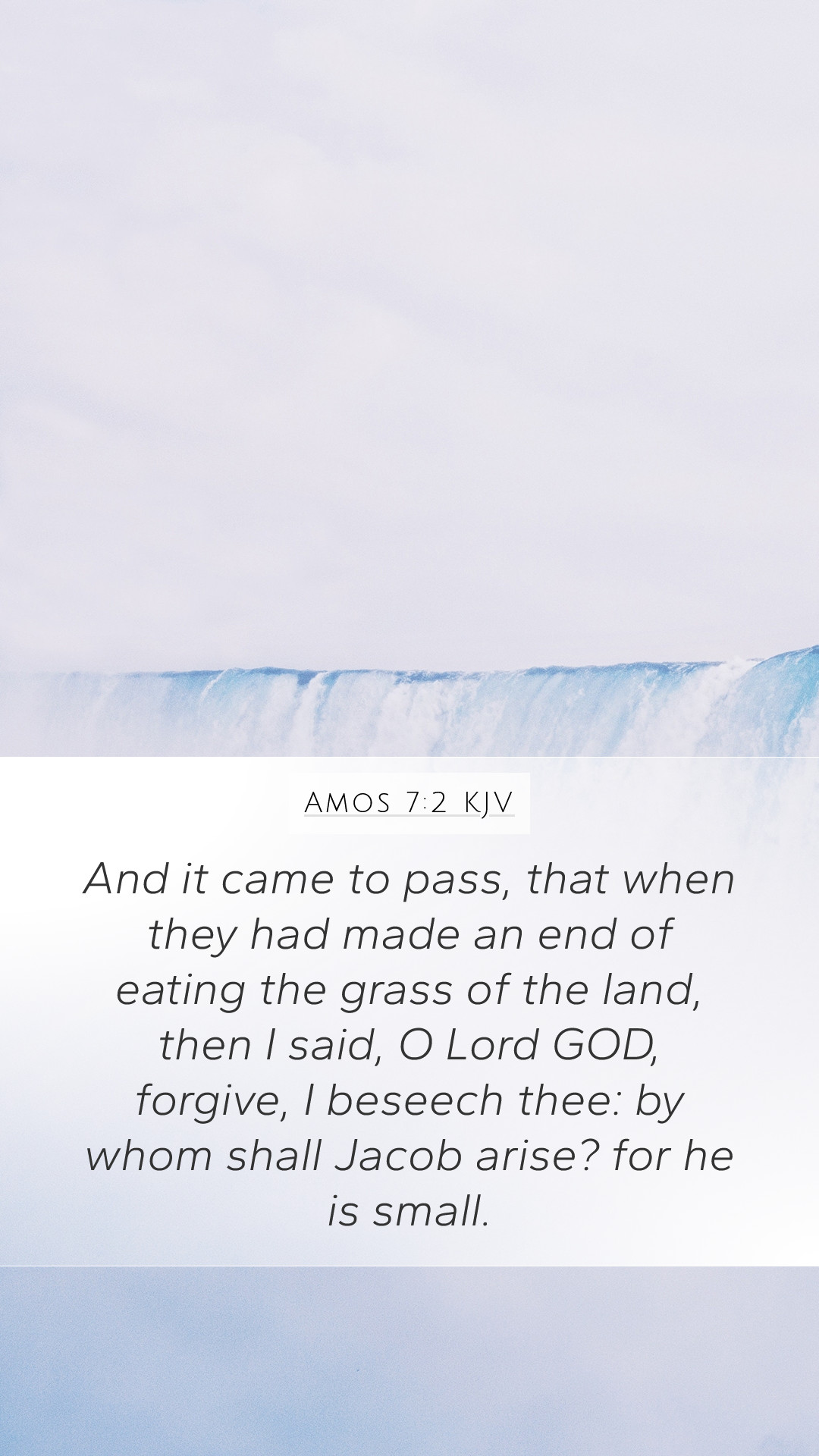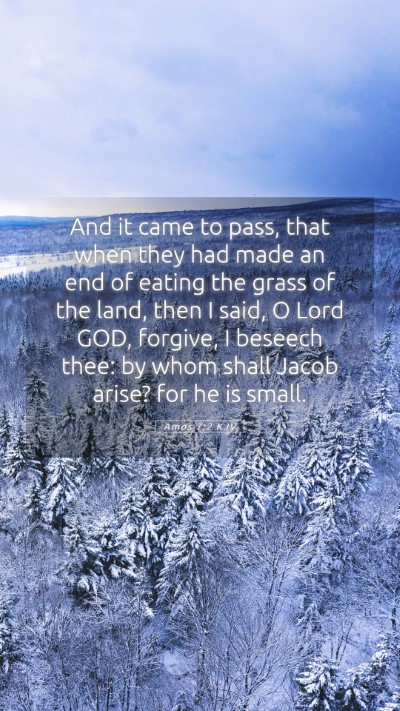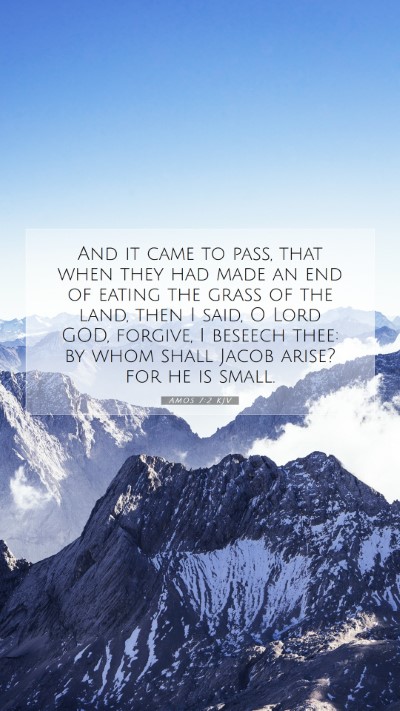Old Testament
Genesis Exodus Leviticus Numbers Deuteronomy Joshua Judges Ruth 1 Samuel 2 Samuel 1 Kings 2 Kings 1 Chronicles 2 Chronicles Ezra Nehemiah Esther Job Psalms Proverbs Ecclesiastes Song of Solomon Isaiah Jeremiah Lamentations Ezekiel Daniel Hosea Joel Amos Obadiah Jonah Micah Nahum Habakkuk Zephaniah Haggai Zechariah MalachiAmos 7:2 Meaning
What is the meaning of Amos 7:2?
And it came to pass, that when they had made an end of eating the grass of the land, then I said, O Lord GOD, forgive, I beseech thee: by whom shall Jacob arise? for he is small.
Amos 7:2 Bible Verse Meaning
Understanding Amos 7:2 - A Comprehensive Bible Verse Explanation
Bible Verse: Amos 7:2 (KJV) - "And it came to pass, that when they had made an end of eating the grass of the land, then I said, O Lord God, forgive, I beseech thee: by whom shall Jacob arise? for he is small."
Overview of the Verse
In this verse, the prophet Amos is confronted with a vision of judgment that reveals the plight of the people of Israel. The imagery used here is critical for understanding the deeper implications of God’s message through Amos.
Historical Context
Amos prophesied during a time of relative prosperity in Israel, yet the social injustices and moral decay were rampant. Understanding the historical context is crucial in biblical exegesis, allowing us to appreciate the urgency of Amos’s plea to God for mercy on Israel.
Meaning and Interpretation
-
The Vision of Locusts:
Amos’s first vision involved locusts, which represented the destruction of the crops essential for survival. This symbolizes the impending judgment upon a nation that has turned away from God.
-
Intercession for Israel:
Amos’s request for forgiveness underscores his role as an intercessor, pleading for the small and vulnerable nation of Jacob (Israel). This is a reflection of God's mercy and the necessity of repentance.
-
Symbolism of Grass:
The grass, which is consumed by locusts, symbolizes the sustenance and life of the people. It signifies how quickly prosperity can turn to desolation if the people continue in sin.
Commentary Insights
Matthew Henry: Henry emphasizes Amos's humility and sincerity in his intercession, illustrating a contrast between the prophet's concern for God’s people and the moral indifference of the nation itself. He indicates that there is always hope for repentance and restoration when one cries out for God’s mercy.
Albert Barnes: Barnes notes the implications of the plea “by whom shall Jacob arise?” This rhetorical question highlights the frailty of Israel as a people deserving of judgment, yet it also reflects a reliance on God’s ability to restore them from their helpless condition.
Adam Clarke: Clarke offers insights on the implications of such a plea for forgiveness and the significance of acknowledging one's smallness before God. He interprets this as a reminder of human vulnerability and the need for divine grace.
Applications to Daily Life
This verse encourages believers to:
- Engage in Intercessory Prayer: Like Amos, we should intercede for our communities and nations, seeking God’s mercy amidst moral decline.
- Acknowledge Our Fragility: Recognizing our dependence on God can lead us to humility and a greater reliance on His grace.
- Seek Restoration: This verse serves as a reminder that no matter how far we stray, return to God is always available through repentance.
Cross References
- Joel 1:4 - Another warning of locusts representing desolation.
- 2 Chronicles 7:14 - A call for God’s people to humble themselves, pray, and seek forgiveness.
- Isaiah 53:6 - References the helplessness of the people in need of God’s grace.
Final Thoughts
Amos 7:2 serves as a poignant reminder of the importance of repentance, intercession, and reliance on God's mercy. By understanding this scripture, we gain insight into the character of God as one who seeks to restore rather than destroy.
If you are looking to deepen your Bible verse understanding and explore the meanings behind other Bible verses, consider joining a Bible study group or utilizing Bible study resources available online.


